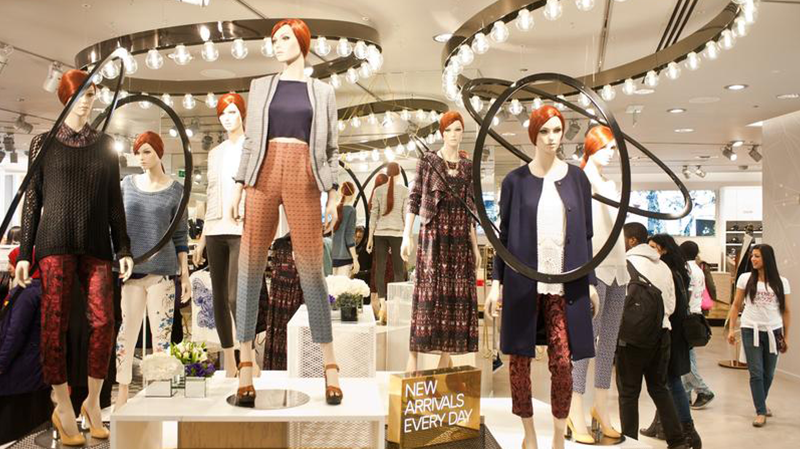
The fashion industry contributes to major total carbon footprints yearly and is one of the greatest polluters of both our natural and industrialized world.
Do you ever wonder how fashion retailers like Forever 21 and H&M are able to keep up with current fashion trends at such rapid speeds, while maintaining low prices? The manner in which these fast fashion stores are able to keep producing the trendiest styles, while also keeping costs extremely low, is almost unthinkable. However, it seems that fads and quantity are all that matter when it comes to these “fast fashion” retailers. What happened to quality, sustainability and environmental concerns?
Before your next shopping spree, you should consider the real cost of shopping fast fashion.
The unrealistic cost that fast fashion has on the environment:
The fashion industry contributes to major total carbon footprints yearly and is one of the greatest polluters of both our natural and industrialized world. According to Nature Climate Change, textile production is "one of the most polluting industries, producing 1.2 billion tonnes of CO₂ equivalent (CO₂e) per year, which is more emissions than international flights and maritime shipping.” Many textile dyes are very toxic and contaminate our environment, making them hazardous to the well-being of our planet. Also, the environmental concerns of shipping materials and clothing products, from overseas manufacturers to retailer shops, contributes to massive amounts of CO₂ waste. Every time we support the fast fashion industry, we are essentially borrowing from tomorrow’s resources to pay for today’s “stylish” trends – all for the sake of fashion, rather than the future of our planet.

“Fast fashion” isn’t as disposable as you may think it is – the constant rate of overturn for the clothing being produced depletes our natural resources and adds to our ever-growing landfills. Materials used in this industry, such as cotton, use up all the resources in the soil, compared to a nitrogen plant or recycled polyester material. According to Cotton Incorporated, it takes 1,800 gallons of water to produce enough cotton for one pair of jeans.
Because "fast fashion" retailers want to be able to produce clothing at extremely low prices, the labor workers who produce their clothing are often paid unfair law labor wages. Not only that, but factory conditions are sacrificed for gaining the most profit for the littlest cost. And because the clothing is made from low-quality fibers and materials, the quality is cheap and artificial.
Most Third World labor wages are sustained by force, rather than a fair and open economy, so workers have no choice when it comes to their wages – they either take the job or go hungry. Most overseas factory owners do not respect the human dignity of their laborers and thus, do not recognize their natural rights to being treated fairly and equally.
By becoming more aware of where we shop, we are advocating a change for ethical issues that need to be addressed when it comes to the clothing industry. The best advice offered is to Choose Well and Make it Last!
Choose Well. Make it Last.



